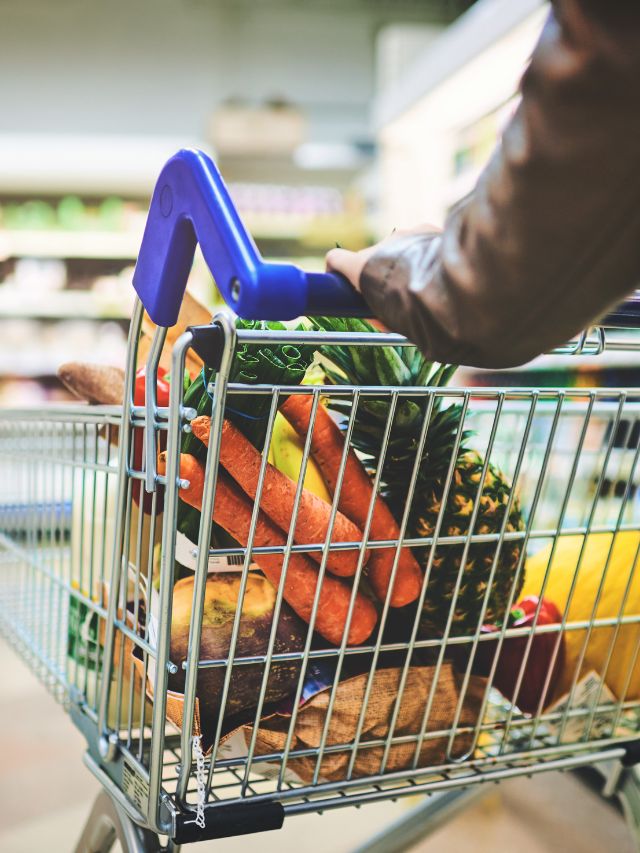If you’re a gas student looking for research inspiration, you’re in the right place! We’ve gathered 115 easy quantitative research topics for gas students. These topics cover various aspects of gas, from its impact on the environment to its role in our daily lives.
Gasoline, natural gas, and other forms of gas play a significant role in our world, affecting everything from our cars to our environment. With these research topics, you can explore how gas influences our lives, our planet, and our future.
Whether you’re interested in the science of gas, its economic aspects, or its impact on society, there’s a topic here for you. Let’s dive into these research ideas and find the perfect one to kickstart your gas-related research project!
112+ Easy Quantitative Research Topics for Gas Students
1. The Impact of Gas Emissions on Climate Change: Analyze the correlation between greenhouse gas emissions and global warming.
2. Energy Efficiency in Gasoline Engines: Investigate ways to improve fuel efficiency in gasoline-powered vehicles.
3. Gas Pricing and Consumer Behavior: Examine how fluctuations in gas prices influence consumer spending habits.
4. Gas Leakage Detection Technologies: Evaluate the effectiveness of various technologies for detecting gas leaks in residential and industrial settings.
5. Air Quality in Urban Areas: Analyze the relationship between gas emissions and air quality in densely populated cities.
6. The Use of Natural Gas in Power Generation: Compare the efficiency and environmental impact of natural gas power plants with other energy sources.
7. Gasoline Additives and Engine Performance: Investigate the effects of gasoline additives on engine performance and emissions.
8. Gas Supply Chain Management: Study the logistics and efficiency of the natural gas supply chain.
9. Renewable Energy Integration with Gas Grids: Explore the possibilities of integrating renewable energy sources with existing gas grids.
10. Gas Flaring and Environmental Consequences: Assess the environmental impact of gas flaring in oil production.
11. Gasoline Taxes and Their Effects: Analyze the impact of gasoline taxes on fuel consumption and government revenue.
12. Methane Emissions from Livestock: Investigate the contribution of methane emissions from livestock to greenhouse gas levels.
13. Gasoline Subsidies and Economic Development: Study the economic implications of government gasoline subsidies in developing countries.
14. Gasoline Octane Ratings and Engine Efficiency: Examine the relationship between octane ratings and engine performance.
15. Hydrogen as a Clean Gas Alternative: Explore the potential of hydrogen as a clean alternative to fossil fuels.
16. Gasoline Consumption Patterns by Age and Gender: Analyze how age and gender influence gasoline consumption.
17. Gasoline Composition and Emissions: Investigate how the chemical composition of gasoline affects emissions.
18. Gasoline Marketing and Consumer Preferences: Study the impact of marketing strategies on consumer preferences for gasoline brands.
19. Gasoline Prices and Public Transportation Use: Analyze how fluctuations in gas prices influence the use of public transportation.
20. Gasoline Quality Standards: Evaluate the effectiveness of quality standards in regulating gasoline production.
21. Gasoline Alternatives for Two-Wheelers: Explore alternative fuels for motorcycles and scooters.
22. Gasoline Vapor Recovery Systems: Investigate the effectiveness of vapor recovery systems at gas stations.
23. Gasoline Consumption in Rural vs. Urban Areas: Compare gasoline consumption patterns in rural and urban regions.
24. Electric Vehicles vs. Gas-Powered Vehicles: Analyze the environmental and economic aspects of electric vehicles compared to traditional gas-powered vehicles.
25. Gasoline Rationing Policies during Crises: Study the impact of gasoline rationing policies during fuel shortages.
26. Gasoline Volatility and Safety Measures: Examine safety measures related to the volatility of gasoline.
27. Gasoline Price Elasticity: Investigate how changes in gasoline prices affect consumer demand.
28. Gasoline Combustion Efficiency: Analyze methods to improve the combustion efficiency of gasoline engines.
29. Gasoline Shortages and Black Markets: Study the emergence of black markets during gasoline shortages.
30. Gasoline Storage and Safety: Evaluate safety protocols for storing gasoline at home.
31. Gasoline Substitutes for Cooking: Explore alternative cooking fuels to reduce reliance on gasoline.
32. Gasoline Sulfur Content and Environmental Impact: Analyze the environmental consequences of sulfur content in gasoline.
33. Gasoline Consumption and Tourism: Investigate the relationship between gasoline consumption and tourism trends.
34. Gasoline Quality Control in Developing Countries: Study the challenges of ensuring gasoline quality in developing nations.
35. Gasoline Transportation and Distribution Networks: Analyze the efficiency of gasoline transportation and distribution systems.
36. Gasoline Price Transparency: Investigate the availability of price information and its impact on consumer choices.
37. Gasoline Use in Agriculture: Study the role of gasoline in modern agricultural practices.
38. Gasoline-Ethanol Blends and Performance: Examine the effects of ethanol blends on engine performance and emissions.
39. Gasoline Consumption Behavior during Economic Downturns: Analyze how economic recessions influence gasoline consumption patterns.
40. Gasoline and Air Pollution: Investigate the relationship between gasoline consumption and air pollution.
41. Gasoline Efficiency in Hybrid Vehicles: Study the efficiency of gasoline engines in hybrid cars.
42. Gasoline Taxes and Cross-Border Shopping: Analyze how gasoline taxes affect cross-border shopping for fuel.
43. Gasoline Price Wars and Market Competition: Investigate the dynamics of price wars among gasoline stations.
44. Gasoline Use in Emergency Response Vehicles: Study the fuel efficiency of emergency response vehicles.
45. Gasoline Price Forecasting Models: Develop models to predict future gasoline prices.
46. Gasoline and Tourism Industry: Analyze the impact of gasoline prices on the tourism industry.
47. Gasoline Production and Environmental Regulations: Investigate the compliance of gasoline producers with environmental regulations.
48. Gasoline Consumption and Commuting Habits: Study how commuting habits influence gasoline consumption.
49. Gasoline Taxation Policies and Government Revenue: Analyze the revenue generated by gasoline taxation.
50. Gasoline Use in Small Businesses: Investigate the role of gasoline in the operations of small businesses.
51. Gasoline and Urban Planning: Examine how urban planning can reduce gasoline consumption.
52. Gasoline Use in Agricultural Equipment: Analyze the fuel efficiency of tractors and other agricultural machinery.
53. Gasoline Storage and Underground Tanks: Investigate the safety of underground gasoline storage tanks.
54. Gasoline and Tourism Destination Choices: Study how gasoline prices influence tourists’ choice of destinations.
55. Gasoline Use in Construction Industry: Analyze the role of gasoline in the construction sector.
56. Gasoline Consumption and Public Health: Investigate the health effects of gasoline emissions on communities.
57. Gasoline Quality and Vehicle Maintenance: Examine how gasoline quality affects vehicle maintenance.
58. Gasoline Price Shocks and Economic Recession: Analyze the relationship between sudden gasoline price increases and economic downturns.
59. Gasoline Demand Forecasting: Investigate methods for accurately forecasting gasoline demand.
60. Gasoline and Food Delivery Services: Study the impact of gasoline prices on food delivery services.
| Also read: MERN Stack Project Ideas |
61. Gasoline Use in Boating and Recreational Vehicles: Analyze the fuel efficiency of boats and RVs.
62. Gasoline and Pollution in Developing Cities: Investigate the role of gasoline in air pollution in rapidly growing cities.
63. Gasoline Tax Evasion and Enforcement: Examine strategies for preventing gasoline tax evasion.
64. Gasoline Price Manipulation: Analyze instances of price manipulation in the gasoline industry.
65. Gasoline and Freight Transportation: Investigate the impact of gasoline prices on the cost of goods transportation.
66. Gasoline and Food Prices: Study the correlation between gasoline prices and food prices.
67. Gasoline Use in School Buses: Analyze the fuel efficiency of school buses.
68. Gasoline and Alternative Transportation: Investigate the adoption of alternative transportation methods due to rising gasoline prices.
69. Gasoline Consumption and Carpooling: Analyze carpooling trends and their impact on gasoline consumption.
70. Gasoline and Ride-Sharing Services: Investigate the relationship between ride-sharing services and gasoline consumption.
71. Gasoline Use in Military Operations: Study the role of gasoline in military logistics.
72. Gasoline and the Gig Economy: Analyze how gig workers are affected by gasoline prices.
73. Gasoline and Telecommuting: Investigate the relationship between telecommuting and gasoline consumption.
74. Gasoline and Consumer Preferences for Electric Vehicles: Analyze factors influencing consumers’ choices between gasoline and electric vehicles.
75. Gasoline Use in Long-Haul Trucking: Study the fuel efficiency of long-haul trucks.
76. Gasoline and Air Travel: Investigate the impact of gasoline prices on air travel trends.
77. Gasoline and Freight Rail Transport: Analyze the efficiency of freight rail compared to gasoline-powered trucks.
78. Gasoline and Public Transportation Infrastructure: Study the relationship between gasoline consumption and investments in public transportation.
79. Gasoline and Food Distribution: Investigate the role of gasoline in the distribution of perishable goods.
80. Gasoline and Shipping Industry: Analyze the fuel efficiency of cargo ships.
81. Gasoline and the Green Energy Transition: Investigate how the transition to green energy affects gasoline consumption.
82. Gasoline Use in Emergency Power Generators: Study the use of gasoline in backup power generators.
83. Gasoline and Sustainable Agriculture: Analyze the role of gasoline in sustainable farming practices.
84. Gasoline and Supply Chain Disruptions: Investigate how supply chain disruptions affect gasoline availability.
85. Gasoline and Telecommunications: Study the role of gasoline in maintaining telecommunications infrastructure.
86. Gasoline and Disaster Response: Analyze the role of gasoline in disaster relief efforts.
87. Gasoline and Emergency Medical Services: Investigate the fuel efficiency of ambulances and emergency medical vehicles.
88. Gasoline and Water Supply: Study the role of gasoline in water supply systems.
89. Gasoline and Public Safety: Analyze the impact of gasoline shortages on public safety services.
90. Gasoline and Agriculture Irrigation: Investigate the use of gasoline in irrigation systems.
91. Gasoline and Wildlife Conservation: Study the environmental impact of gasoline use in wildlife conservation efforts.
92. Gasoline and Infrastructure Development: Analyze how gasoline availability influences infrastructure development.
93. Gasoline and Disaster Preparedness: Investigate the role of gasoline in disaster preparedness plans.
94. Gasoline and Healthcare: Study the impact of gasoline shortages on healthcare services.
95. Gasoline and Education: Analyze the role of gasoline in education, including school transportation.
96. Gasoline and Emergency Response Coordination: Investigate how gasoline shortages affect coordination among emergency response agencies.
97. Gasoline and National Security: Study the national security implications of gasoline availability.
98. Gasoline and Remote Work: Analyze how remote work trends impact gasoline consumption.
99. Gasoline and Water Treatment Plants: Investigate the role of gasoline in maintaining water treatment facilities.
100. Gasoline and Disaster Recovery: Study the use of gasoline in post-disaster recovery efforts.
101. Gasoline and Police Services: Analyze the role of gasoline in police department operations.
102. Gasoline and Environmental Conservation: Investigate the impact of gasoline use on environmental conservation efforts.
103. Gasoline and Transportation Equity: Study how gasoline availability affects transportation equity in communities.
104. Gasoline and Disaster Communication: Analyze the role of gasoline in maintaining communication during disasters.
105. Gasoline and Emergency Shelter: Investigate the use of gasoline in emergency shelter operations.
106. Gasoline and Emergency Food Distribution: Study the role of gasoline in food distribution during emergencies.
107. Gasoline and Emergency Medical Supplies: Analyze the use of gasoline in transporting medical supplies during crises.
108. Gasoline and Emergency Water Supply: Investigate the role of gasoline in providing emergency water supply.
109. Gasoline and Disaster Cleanup: Study the use of gasoline in disaster cleanup efforts.
110. Gasoline and Hazardous Material Transport: Analyze the safety measures for transporting hazardous materials using gasoline.
111. Gasoline and Disaster Relief Coordination: Investigate how gasoline shortages affect coordination among relief organizations.
112. Gasoline and Disaster Evacuation: Study the role of gasoline in disaster evacuation plans.
113. Gasoline and Disaster Medical Services: Analyze the use of gasoline in providing medical services during disasters.
114. Gasoline and Emergency Transportation: Investigate the role of gasoline in emergency transportation services.
115. Gasoline and Disaster Preparedness Education: Study the role of gasoline in educating communities about disaster preparedness.
Conclusion
These 112+ easy quantitative research topics for gas students offer a wide range of exciting possibilities for exploration. Whether you’re passionate about the environment, technology, economics, or social issues related to gas, there’s a topic that can ignite your curiosity.
As a student studying gas, you have a unique chance to add valuable insights to our knowledge of how this essential resource affects our world. Remember, research is not only about finding answers but also about asking the right questions.
By selecting one of these research topics and delving into it, you can deepen your knowledge, enhance your critical thinking abilities, and leave a positive mark on the field of gas studies. So, pick a topic that resonates with you, gather your data, and embark on your research journey. Your discoveries could help shape a cleaner, more sustainable future for us all.








